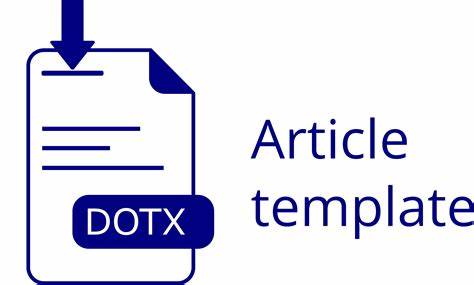PENANAMAN NILAI-NILAI TASAWUF DALAM KELUARGA
DOI:
https://doi.org/10.18592/al-hiwar.v5i10.1888Keywords:
the values of Sufism, family, childrenAbstract
Family is a small community in society. Every Muslim is required to live in order to live the demands of Islamic teachings. The family is the most important unit for the development process of the ummah. a good personality is formed from a family that instills good manners. The concept of family in Islam is quite clear even Islam is very priority of individual and family coaching. Because the family is a good prerequisite for a nation and Country, especially if all families follow the guidelines submitted religion, in addition the family is also the closest environment with children, since children are born, in this family the children will have much experience to grow and developing for the future. Inside the family parents can give examples of behaviors that will be imitated by children, because in the family is the most effective place to membelajarkan value of religion to the child. The role of parents in the family as guides, caregivers, teachers, mentors, and example in the family. Parents are very big role in inculcating the values of Sufism as the foundation of his children, With the inculcation of the values of mysticism by parents, it is expected that in the next stage of development the child will be able to distinguish good bad, right wrong, so that children can apply it in everyday lifeReferences
A Mustofa, Akhlak Tasawuf, Bandung, Pustaka Setia, 1999.
A. Rivay Siregar, Tasawuf: Dari Sufisme Klasik ke NeoSufisme, Jakarta: Raja Grafindo, 2002.
A.Bachrun Rifa‟I dan Hasan Mud‟is, Filsafat Tasawuf, Bandung, CV Pustaka Setia, 2010.
Abdul Majid dan Dian Andayani, Pendidikan Agama Islam Berbasis Kompetensi.
Abuddin Nata, Akhlak Tasawuf, PT RajaGrafindo Persada, Jakarta, 2002.
Afifi Abdul Fatlah Thabbarah, Dosadosa Mellunli AI-Qur'all, TeIj. Bahrun Abu Bakar.
Ahmad Musthafa Al-Maraghi, Tafsir Al-Maraghi, terj. Bahran Abu Bakar, dkk. Semarang, Toha Putra, 1992.
Ali Badawi, Imbalan dan Hukuman Pengaruhnya bagi Pendidikan Anak, Jakarta, Gema Insani Press, 2002.
Amin Syukur, Zuhud di Abad Modern, Yogyakarta, Pustaka Pelajar, 1997.
Departemen Agama RI, Al-Qur’an, Al-Qur’an dan Terjemahnya, Surabaya, 2004.
DEPDIKBUD, Kamus Besar Bahasa Indonesia, Jakarta, Balai Pustaka, 1990.
Djamarah, Syaiful Bahri, Pola Komunikasi Orang Tua dan Anak Dalam, Erlangga, 2012.
Faried, Ahmad, Menyucikan Jiwa : Konsep Ulama Salaf, Risalah Gusti: Surabaya, 1993.
Hamka, Tasawuf Modern, Pustaka Panjimas, Jakarta, 1990.
Hamka, Tasawuf, 3; Nurcholis Madjid, Islam Agama Peradaban: Membangun Makna dan Relevansi Islam dalam Sejarah, Jakarta, Yayasan Paramadina, 1995.
Hasan Langgulung, Jakarta:.Manusia dan Pendidikan Suatu Analisa Psikologis, Filsafat danPendidikan, Pustaka AlHusna, 2004.
Hasyim Muhammad, Dialog Antara Tasawuf dan Psikologi Keluarga, Anggota IKAPI, Jakarta , PT RINEKA CIPTA.
Hasyim Muhammad, Dialog Antara Tasawuf dan Psikologi, Yogyakarta, Pustaka. Pelajar Offset: 2002.
Hery Noer Aly, Ilmu Pendidikan Islam, Jakarta: Logos, 1999.
M. Solihin, Rosihan Anwar, Ilmu Tasawuf, Bandung, Pustaka Setia, 2008.
M. Zain Abdullah, Dzikir dan Tasawuf, Solo, 2007.
Mahmud Yunus, Kamus Arab Indonesia, Jakarta, Hidakarya Agung, 1990.
Mantep Miharso, Pendidikan Keluarga Qur’ani, Yogyakarta: Safiria Insania Press, 2004.
Muhammad Rabbi Muhammad Jauhari, Keistimewaan Akhlak Islami, terj. Dadang Sobar Mutaman, Maqam-maqam Sufi dalam Al Qur’an, Yogyakarta, Al-Manar, 2008.
Rakhmat, Jalaluddin, Membuka Tirai Kegaiban: Renungan-Renungan Sufistik, Bandung: Mizan, 2001.
Rosihan Anwar, Akhlak Tasawuf, Bandung, Pustaka Setia, 2010 Samsul Munir Amin, Ilmu Tasawuf, Jakarta , Amzah, 2012.
Sutan Muhammad Zain, Kamus Modern Bahasa Indonesia, Jakarta, Grafika, tth.
Syaiful Bahri Djamarah, Pola Asuh Orang Tua Dan Komunikasi Dalam Keluarga: Upaya Membangun Citra membentuk Pribadi Anak, Jakarta: PT Rineka Cipta, 2014.
Syukur, Amin, Sufi Healing; Terapi dengan Metode Tasawuf, Jakarta .
TM. Hasbi Ash Shiddieqy, al-Islam. I, Pustaka Rizki Putra, Semarang, 2001.
W.J.S. Poerwadarminta, Kamus Umum Bahasa Indonesia, (Jakarta: PN Balai Pustaka, Yogyakarta, 2002.
Downloads
Published
How to Cite
Issue
Section
License
Authors who publish with this journal agree to the following terms:
- Authors retain copyright and grant the journal right of first publication with the work simultaneously licensed under a Creative Commons Attribution License that allows others to share the work with an acknowledgement of the work's authorship and initial publication in this journal.
- Authors are able to enter into separate, additional contractual arrangements for the non-exclusive distribution of the journal's published version of the work (e.g., post it to an institutional repository or publish it in a book), with an acknowledgement of its initial publication in this journal.
- Authors are permitted and encouraged to post their work online (e.g., in institutional repositories or on their website) prior to and during the submission process, as it can lead to productive exchanges, as well as earlier and greater citation of published work.





